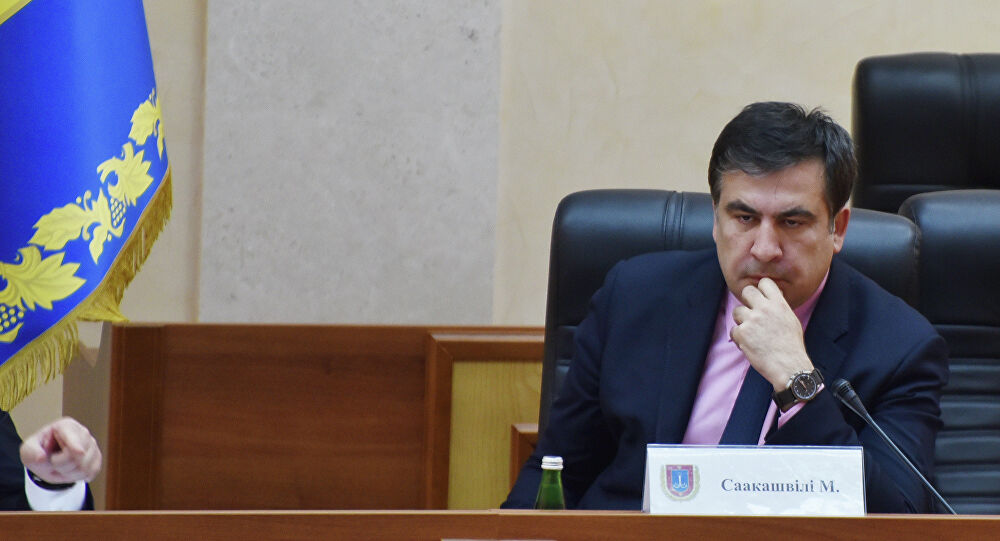
The Politics of Reform: Saakashvili’s Odesa Mission (Part One)
The Politics of Reform: Saakashvili’s Odesa Mission (Part One)
Georgia’s former president, Mikheil Saakashvili, has accepted Ukrainian President Volodymyr Zelenskyy’s offer to chair the Executive Committee of Ukraine’s National Council for Reforms (Ukrinform, May 7). Taking up the new challenge, Saakashvili promised to draw on the experience of his universally recognized achievements in Georgia (which inspired this new appointment in Ukraine) “but also to draw on the experience of my defeats” (Ukraine Crisis Media Center, May 8).
Saakashvili’s new appointment is being met with a fair measure of skepticism on the part of Ukrainian civil society groups and pundits. One of the reasons for skepticism is the perceived outcome of Saakashvili’s governorship in Odesa Province in May 2015–November 2016. It may perhaps be termed as an inconclusive outcome, although in all fairness it should qualify as a limited success against daunting odds. Saakashvili resigned from that mission after only 18 months, with a show of anger, blamed then-president Petro Poroshenko—who had appointed him there—for sabotaging the mission, and has attacked Poroshenko implacably since then (adding more issues over time). Those recriminations have unnecessarily cast a pall on his Odesa mission by implying its failure or fostering such a perception.
Saakashvili was governor (technically: chairman of the state administration) of the Odesa region from May 30, 2015 to November 7, 2016. Poroshenko selected Saakashvili, a long-time friend, for the governorship, but this was the ultimate merit-based appointment. As president of Georgia in 2004–2012 he had led the boldest and most successful reform program of any country in Europe’s East—a program cut short at mid-distance by regime change. Many Ukrainians expected Saakashvili to deliver a repeat performance in Odesa Province (population 2.4 million, including slightly more than 1 million in the main city of the same name).
Underdeveloped and mismanaged, but with strong natural potential for modern development, this province was supposed to turn under Saakashvili’s administration into an example of successful reforms, to be emulated by other Ukrainian regions and the country at large.
Parallels between Georgia’s pre-2004 circumstances and those in Odesa were readily apparent when Saakashvili took over the province. Broadly similar features included a pre-modern, incoherent administration; local power brokers and networks able to bypass or influence official institutions; social cultures of organized crime and corruption; insufficient and decaying infrastructure; mismanaged state-owned industry; disincentives to foreign direct investment; under-utilized potential of the maritime trade in the Black Sea.
In Odesa, however, Saakashvili lacked all the instruments that he and his team had fashioned in Georgia to push high-paced reforms through—essentially, orders from above. Some of the instruments were those of authoritarian reformism pursuing economic liberal and social liberal goals. The panoply of those tools in Georgia included:
– the institution of the executive presidency;
– a highly motivated, Western-schooled core team of impeccable integrity around the president;
– a vertically organized state administration pushing through the reform measures from above to local levels;
– a stable, constitutional majority of the pro-presidential party in parliament, for two full legislative terms, unencumbered by coalitions, and postponing the introduction of checks and balances until a more mature political system could handle these;
– discretionary budget-forming authority;
– one or two major television channels consistently supportive of the Saakashvili team’s reform agenda;
– and (as starting premises) effective law enforcement agencies to guarantee stability and rule of law, along with a judiciary applying maximum severity to corruption and organized crime.
No such reform-driving instruments were available in Odesa Province or in Ukraine generally; nor do they exist now.
Georgian advisors identified these weaknesses in Ukraine’s political system as soon as they began arriving in the country in 2015. Poroshenko and the government of Arseniy Yatsenyuk employed a significant number of former Georgian officials and experts who had served during the Saakashvili era, to impart their experience to Ukraine. The 2012 regime change in Georgia halted the further advance of reforms in that country, but the results achieved up to that point inspired Ukraine’s leadership—after the country’s own regime change—to invite some of the authors and practitioners of Georgia’s reforms to work in Ukraine.
Those Georgian officials and advisors expressed sometimes impatience and frustration with the slow pace and cumbersome mechanisms of reforms in Ukraine. They had been able to set a much faster pace in Georgia. In Kyiv, however, they saw vested interests entrenched in corrupt bureaucracies, deficient institutional capacity, shortage of personnel with modern Western training, and many problems associated with the system of government by coalition. They saw the dispersal of political authority in Ukraine as ill-suited for radical reforms. Infighting for power among political factions was even more counterproductive. In Georgia, they were able to act radically because they had a clear system of decision-making and implementation. In Ukraine, however, every issue had to be negotiated and considered in detail, taking into account the interests of many stakeholders; any significant initiative or legislation necessitated lengthy efforts to build parliamentary coalitions (see EDM, June 5, 2015).
That situation has changed at least formally with the 2019 elections, which resulted in a parliamentary majority of one party (mono-majority) for the first time in independent Ukraine’s history. The uncertainty, however, inheres in the presidential office at this time.


